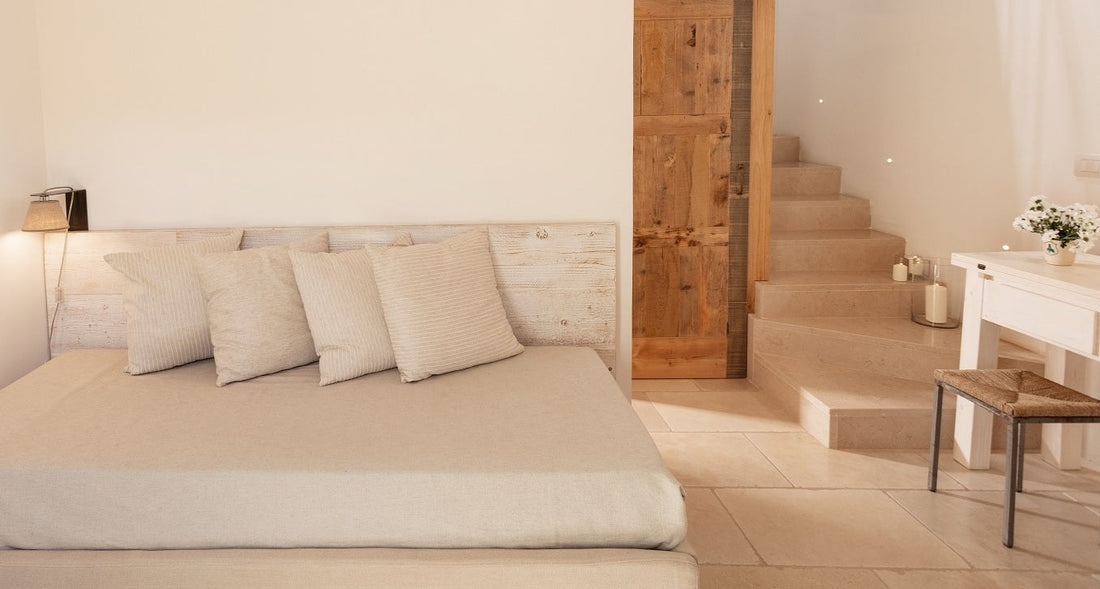
New Trends in Hospitality? Boutique Hotel and Lifestyle Hotel
Share
The boutique hotel sector is constantly growing. Both independent hotels and large hotel chains are investing heavily to establish a presence in this vibrant market sector, which has quickly become a global phenomenon.
How do you distinguish a Boutique Hotel? Everyone has their own personal answer to the question "what is a boutique hotel?", but there are certainly some key points that are hard to give up in order to be included in this category:
1. Size
Typically a boutique hotel is small (between 10 and 50 rooms, or even less). The size and setting must create a sense of intimacy, almost as if the guest were in a private residence, rather than an ordinary hotel. The small size also allows us to focus on details and have a personalized and unique design (not serial) for each room or common area.
Bed linen is a precious element for the well-being of those who use it because rest, as we know, is essential to face the day with peace of mind.
Sometimes, in the international context, the term “lifestyle hotel” is used (with a very similar meaning to “boutique hotel”), precisely to enhance the aspect of the guest experience, as well as the attention to detail.
2. Uniqueness
As we have already said, everything is done to avoid a feeling of "seriality", giving a unique and distinctive look, and avoiding modular or "cookie-cutter" solutions. All aspects, from interior design to guest reception, must follow a harmonious design, with a strong personality and some elements that unmistakably characterize the accommodation facility.
Sometimes, to accentuate the uniqueness of a boutique hotel, unusual elements are inserted, always as part of an overall project, and placed in a harmonious context.
3. Design
The architecture and design of a boutique hotel are certainly the most important aspects to find a unique characterization for your accommodation facility. The context can be varied: it can be historic homes, finely and elegantly furnished, or modern environments, characterized by contemporary design and experimental solutions.
Some have artistic settings, while others experiment with original solutions in design and technology. The constant is always the uniqueness of the style, the originality of the project and a strong personality.
Personality, style and sophistication are precisely those characteristics that appeal to the target of guests that this type of structure intends to attract. The typical guest is in fact a person who loves to include these elements in every aspect of their daily life, and intends to maintain them when traveling for vacation or work.
4. Character
In addition to elegance and design, a boutique hotel tends to have an eccentric personality. They are elegant but also particular, trendy but always “out of the chorus”. From the moment they arrive, creativity must reign supreme when it comes to welcoming their guests, at various times and in various environments.
5. Location
Usually, the location where the boutique hotel is located is also one of its characterizing features: it is typically in an attractive neighborhood or a trendy area within urban areas, or it can be immersed in a particular landscape setting, or even in environments outside the city (think of luxury farmhouses, spas or resorts far from mass tourism, with high-level services even if small in size).
6. Culture
As an extension of a unique personality, boutique hotels often exude local atmosphere and culture, with a strong “sense of place” in which they are located, incorporating local materials or demonstrating their heritage through art, colors and decorations.
Some boutique hotels are “themed,” meaning the entire project, from decorations to service, revolves around a particular theme such as art, style, sports, nature, etc. This accentuates the feeling of uniqueness and allows them to cater to the tastes of a select clientele.
7. Service
Highly personalized service is the key feature for a boutique hotel. The staff is trained to treat the guest in a way that makes him feel “pampered”, adapting the service to specific tastes and needs. Each guest must feel “special”.
Many boutique hotels, for example, present themselves as ideal for couples on their honeymoon, standing out for their “unforgettable” service that is certainly suitable for the occasion.
Also in this case, as a distinctive feature, some original and unusual elements are inserted (for example a “welcome” service, some freebies, or the possibility of combining “experiences”, depending on the location and type of accommodation facility).
8. Gastronomy
Since the customer experience must be put at the center, especially in Italy, one cannot ignore the food aspect. Even in this case, the hotel restaurant and bar tend to be sophisticated, trendy and with elements of the local culinary tradition.
The unique and elegant setting, the quality, the genuine cuisine, the aperitifs and cocktails to be enjoyed in a refined and anything but ordinary context, will attract both hotel guests and locals.
9. Customers
Of course, you can't leave out the consideration of the type of customers who like to stay in boutique hotels. And it is equally obvious that you can't generalise, so an in-depth study of your target customers is the most important data to realise the overall project.
Often the character of the structure reflects the personality of the typical guest: people who love creativity, style and originality, luxurious settings and attentive service will feel at home in a boutique hotel.
